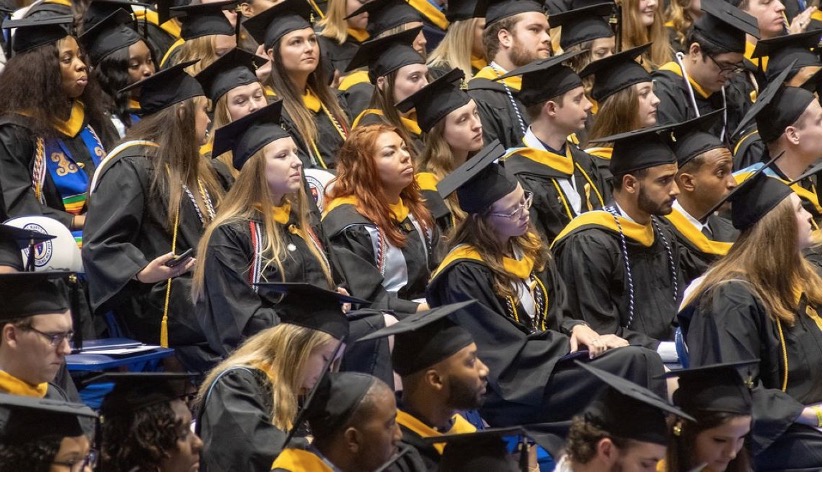CommentsNEXT GEN - It’s graduation season, which is usually joyful. But many graduates aren’t in a celebratory mood this year — a lesson Vice President Kamala Harris recently learned the hard way.
“I look at this unsettled world,” Harris tweeted to 2022 graduates, “and I see the challenges. But I also see the opportunities. Opportunities for your leadership. The future of our country and our world will be shaped by you.”
It was one of many tweets that Harris addressed to students around the country. But while well-meaning, the vice president’s words struck many as tone-deaf. Each tweet was met with some backlash.
“Thank you,” replied one user. “It would be an even better future with student debt forgiveness.”
One frustrated tweeter wrote, “Now if only the politicians we supported will find it in themselves to fight for us.”
A recent NPR poll found that support for the Biden administration among Gen Z and Millennials was at just 37 percent — its lowest approval rating of any age group. Combined, these two groups make up the largest voting bloc in American history. They were key to Biden and Harris’s victory, but now they feel let down.
Racial injustice, economic insecurities, climate change, student loan relief, and now abortion rights top the list of issues younger generations want to see addressed. Unfortunately, these are all issues where Democrats in Congress and the White House have allowed themselves to be thwarted by both Republicans and conservatives in their own party.
Despite our disappointment, presidents and politicians keep sending the message that young people will pave the way for a better future. When they fail, they place their bets — and burdens — on us.
Hope for us isn’t misplaced. Young people are more engaged in politics today than at almost any point in history. According to Pew Research, we’re also more educated than previous generations, more tech savvy, and more vocal on important issues.
But our ambitions will prove futile if the older adults in the room — especially elected officials — fail to do their part now to confront the challenges they’re passing down to us.
The Washington Post has called millennials the “unluckiest generation in U.S. history.” We’ve come of age between two major recessions, a pandemic, and skyrocketing prices for housing and higher education. And as more states pass voter suppression laws, we’re more likely to report facing barriers to voting.
As Anne Helen Petersen wrote in BuzzFeed, “the challenges we face aren’t fleeting, but systemic.” We’re doing our part to change this system. We need the people in power today to do the same.
For example, with the anticipated overturn of Roe v. Wade, Congress could codify abortion rights into law and pass Supreme Court reforms to avoid jeopardizing the future of other civil rights — like same-sex and interracial marriage, contraception, and voting rights.
Lawmakers could also reallocate money from the nation’s lopsided military budget to invest in health, affordable housing, and other pressing domestic needs that are fast becoming unaffordable.
In many ways, today’s political divide is arguably more about young vs. old than Democrat vs. Republican. As a voting millennial doing my part to be the change I wish to see in the world, I often feel overwhelmed — and helpless — about what my generation calls the “dumpster fires” surrounding us.
The challenges — and opinion polls — are clear. If my peers and I are the hope for this country’s future, we need more action and accountability today — and less buck passing.
(Tracey L. Rogers is an entrepreneur and Diversity, Equity, and Inclusion consultant in Philadelphia. This op-ed was distributed by OtherWords.org).







